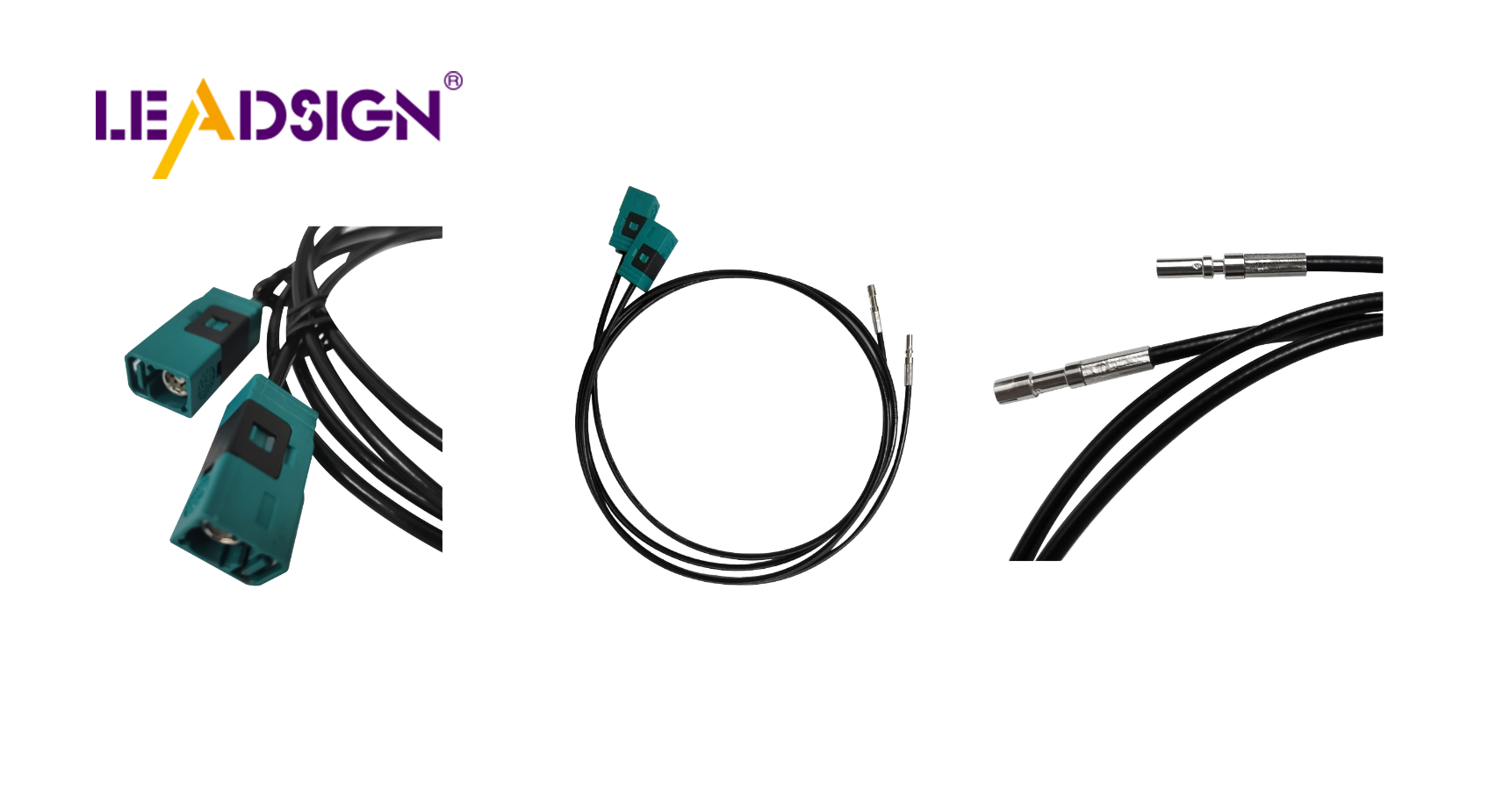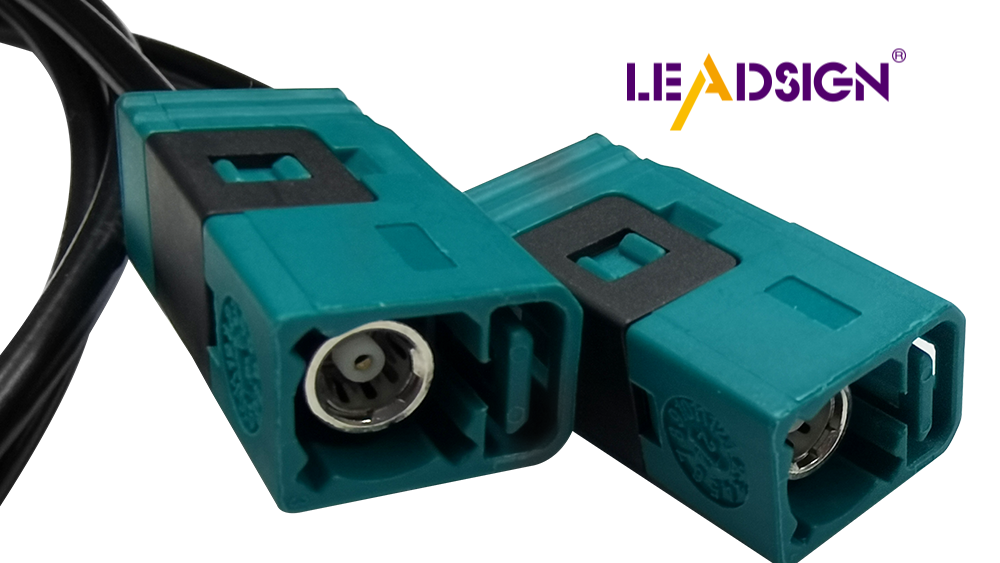Top 10 Automotive Wiring Connector Types You Need to Know

Automotive electrical connectors are vital components of your vehicle's electrical system. They facilitate the smooth transmission of electricity, signals, and essential information. Without these connectors, your car's electronics would not function effectively. Understanding the various automotive electrical connectors types is key to selecting the appropriate ones for your vehicle. This knowledge ensures that your car's electrical system operates efficiently and reliably, which is crucial for the overall performance of your vehicle.
Understanding Automotive Wiring Connectors
General Features
Material Composition
Car wiring connectors use special materials to last long. They are often made from plastic, metal mixes, copper, silver, and gold. These materials help with electricity flow and resist rust. They are also strong. For example, automotive wire terminals need good contact and strength. They should be light and easy to make. Using precious metals in crimp contacts makes them flexible and useful for many car jobs.
Design and Structure
The shape of car wiring connectors is important for their job. Connectors are built to handle tough conditions like shaking, heat, and rust. Molex's Specialty Power Connectors are very strong. They work well with board-to-board and wire-to-wire setups. This keeps connections safe even when things get rough. Also, connectors have features like fast edge cards for specific car needs.
Applications in Automotive Systems
Electrical Systems
In car electrical systems, connectors help move power around the vehicle. You find them in many parts making sure electricity flows well everywhere. TE's Automotive Connectors are made for hard tasks in cars, trucks, and buses. They stay connected even with shaking or heat changes common in cars.
Communication Systems
Connectors are key in car communication systems too. They help send data between electronic parts without losing signals. For instance, connectors must handle fast data speeds securely. Molex's high-speed flexible edge cards ensure smooth communication in modern cars with advanced tech like infotainment systems.
Types of Car Wiring Connectors
By How They Work
Knowing how car wiring connectors work helps you pick the right ones. Connectors do different jobs, mainly for power and signals.
Power Connectors
Power connectors move electricity around your car. They make sure power goes from the battery to parts like the starter motor. These connectors need good insulation to keep power steady. In places with lots of interference, they need strong shields to stop problems.
Signal Connectors
Signal connectors send data between electronic parts in your car. They're important in systems like music players and maps where data must be correct. These connectors have surface contact which is better than point contact for sending signals well. For best results, use ones with double springs for better connections.
By Shape
The shape of car wiring connectors affects how they fit and work in your car's system. They are called male or female based on their shape.
Male Connectors
Male connectors have pins that stick out to fit into female ones. They're used when a strong connection is needed so they don't come apart easily. Choose male connectors with strong pins for better contact.
Female Connectors
Female connectors have holes to receive male pins. They keep the circuit connected securely. Many have double springs for reliable contact and less resistance, which helps in sending signals or power smoothly.
Top 10 Automotive Wiring Connector Types

Type 1: Sealed Connectors
Features
Sealed connectors keep out water and dust. They are important in tough places. These connectors use strong materials. They can handle heat and shaking. Molex and TE Connectivity make these durable connectors. They keep connections safe in hard car environments.
Applications
In cars, sealed connectors are very important. You see them in engines and outside parts. They keep electrical connections working well. Sealed connectors are used for headlights and taillights. They stop rust and keep connections steady.
Type 2: Crimp Connectors
Features
Crimp connectors join wires without soldering. You press them onto wires for a strong hold. This makes sure electricity flows well with little resistance. Crimp connectors come in different shapes like U, fork, and hole forms.
Applications
Crimp connectors are common in car wiring harnesses. They connect wires to parts quickly and securely. You find them in battery links, starter motors, and alternators.
Type 3: Bullet Connectors
Features
Bullet connectors have a simple design with male and female parts that fit together easily. This makes connecting or disconnecting easy for many uses.
Applications
In cars, bullet connectors are used for lights and accessories like speakers or other gadgets where you need to disconnect often.
Type 4: Spade Terminals
Features
Spade terminals are very common in cars. They look like flat forks, making them easy to use. You can connect wires fast without special tools. They come in different sizes for different wires. Made from copper or brass, they conduct electricity well and don't rust easily. Their simple design makes them useful in many car parts.
Applications
Spade terminals are found in many car systems. They are used in car radios to connect speakers and amplifiers. They're great when you need to unplug things often, like during repairs or upgrades. Spade terminals also connect wires to switches and relays, helping the car's electrical system work smoothly. Their usefulness makes them a top choice for many car connections.
Type 5: Butt Connectors
Features
Butt connectors are important for joining wires in cars. They look like small tubes that link two wire ends together securely. This keeps out water and dirt, protecting the connection. Made from strong materials like nylon or PVC, they insulate well even in tough conditions. Butt connectors have a crimping feature that holds wires tight, even if there's a lot of shaking.
Applications
In cars, butt connectors help join wires when fixing or adding new ones. They're handy where space is tight because they're small and easy to fit in place. Butt connectors also link wires to sensors and actuators so signals move correctly through the vehicle. Their strong hold makes them a favorite for connecting car wires.
Type 6: Multi-pin Connectors
Features
Multi-pin connectors can join lots of wires at once in one piece. They have many pins inside one connector for complex setups. These can handle high data speeds and power levels needed by modern cars' systems. Built from tough materials, they last long even with heat and shaking.
Applications
Multi-pin connectors are used in advanced car systems today, especially where electronics are involved heavily like engine control units (ECUs). They help sensors talk to each other within the system efficiently. In infotainment setups, they connect screens, sound parts, and GPS units together easily due to their compact size.
Type 7: FAKRA Connectors
Features
FAKRA connectors are strong and handle high frequencies well. They are made for tough car needs. These connectors have a special code to stop mistakes, ensuring they work right. They lock in place securely, making them reliable for many uses. FAKRA connectors can handle fast data up to 8 Gbps and work from DC to 6 GHz. Their resistance is 50 Ω, and they can take temperatures from -40 °C to +105 °C. With different sizes, these connectors save space and plug in quickly.
Applications
In cars, FAKRA connectors are important for high-frequency jobs. You see them in radio antennas, GPS systems, and navigation tools. They help with entertainment systems, mobile phones, and Bluetooth/WLAN tasks too. Also, FAKRA connectors are used in remote controls for keyless entry and car heaters. They help sensors detect things, making them key parts in modern cars.
Type 10: Delphi Connectors
Features
Delphi Connectors are strong and reliable for cars. They handle tough conditions like shaking, rust, and hot or cold weather. These connectors keep electricity flowing smoothly. Delphi Connectors have many good features:
Durability: They stay strong in hard car environments.
Versatility: They come in different types to fit various needs, including sealed ones to block water and dust.
Ease of Use: Easy to install, saving time on wiring work.
High Performance: Low resistance means better electrical connections.
Applications
In your car, Delphi Connectors are very important. They are used in:
Engine Management Systems: Keeping sensors and parts connected for engine control.
Infotainment Systems: Connecting audio, video, and maps for a better drive.
Safety Systems: Helping airbags and brakes work with secure links.
Lighting Systems: Making sure lights inside and outside the car work well.
Choosing Delphi Connectors helps your car's electric systems run well. This makes your car safer and perform better overall.
Picking the Right Connector
Things to Think About
Matching
When choosing a connector, make sure it fits your car's system. Check its size, shape, and pin setup. Molex Connectors have many choices like wire-to-board and wire-to-wire. These fit different car needs. Always check if the connector can handle the right voltage and current. This stops problems that might break your system.
Toughness
Connectors in cars need to be tough. They should handle heat changes, shaking, and wetness. Look for ones made from strong stuff like brass or good plastics. Piggyback Spade Connectors are strong because they use brass. They last long even in hard places. Strong connectors mean less fixing and better car systems.
Mistakes to Avoid
Skipping Details
A big mistake is not checking connector details. Always look at things like contact numbers and how much current it carries. Picking one with more connections helps mix power and signals well as shown in the Automotive Electrical Connector Selection Guide. This keeps signals clear and gives backup options so your system works well always.
Forgetting Environment
Another mistake is ignoring where the connector will be used. Think about temperature, water exposure, and chemicals around it. Wrong connectors can fail fast if not suited for these conditions. If there's moisture, pick sealed connectors to keep water out. By thinking about these factors, you keep your car's wiring working longer and better.
Picking the right car wiring connectors is very important. It helps your car work well and stay safe. Know the different types to make strong connections that last in tough spots. Use this info to improve your car's electric parts. Learn about new connector tech, like Molex Specialty Power Connectors. They are strong and good for hard places. Keep learning to keep your car running smoothly and reliably.
See Also
Exploring HSD Connectors in Automotive Technology
Significance of Fakra Connectors in Contemporary Cars
Key Role of FAKRA Connectors in Auto Uses

